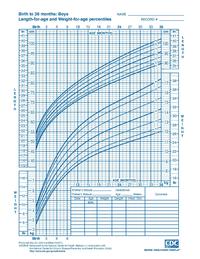
Photo from wikipedia
Background The association between dietary energy patterns, calories, and the outcomes of heart failure (HF) is still unclear. Objectives To evaluate the proper energy intake patterns and daily calorie intake… Click to show full abstract
Background The association between dietary energy patterns, calories, and the outcomes of heart failure (HF) is still unclear. Objectives To evaluate the proper energy intake patterns and daily calorie intake in patients with heart failure among US adults. Methods The data were derived from the 2001–2014 National Health and Nutrition Examination Survey (NHANES). A calorie intake pattern variable was created using latent class analysis (LCA) based on the calorie ratio of three major nutrients. Cox proportional hazard regression models were used to evaluate the hazard ratios (HR) and 95% confidence intervals (CI) of the association between calorie intake and energy patterns. The primary endpoint was all-cause mortality. Results Among 991 participants (mean age 67.3 ± 12.9 years; 55.7% men) who suffered from heart failure; the median calorie intake was 1,617 kcal/day [interquartile range (IQR): 1,222–2,154 kcal/day]. In the multivariable-adjusted model, moderate malnutrition was more frequent to death (HR: 2.15; 95% CI: 1.29–3.56). Low-carbohydrate pattern (LCP) and median-carbohydrate pattern (MCP) had lower risks of death compared to high-carbohydrate pattern (HCP) (LCP: HR: 0.76; 95% CI: 0.59–0.97; MCP: HR: 0.77; 95% CI: 0.60–0.98). No association between different amounts of calorie intake and all-cause mortality was found. There was an adjusted significant interaction between calorie intake and energy intake patterns (p = 0.019). There was a linear relationship between energy intake through HCP and all-cause mortality (p for non-linear = 0.557). A non-linear relationship between energy intake through MCP and all-cause mortality (p for non-linear = 0.008) was observed. Conclusion Both LCP and MCP, compared to HCP, were associated with better outcomes in the HF population. The relationship between energy intake and all-cause death may be influenced by energy intake patterns in HF patients.
Journal Title: Frontiers in Cardiovascular Medicine
Year Published: 2022
Link to full text (if available)
Share on Social Media: Sign Up to like & get
recommendations!